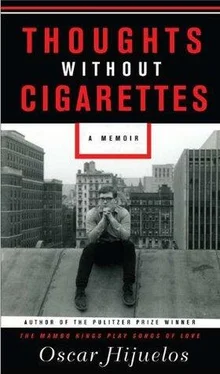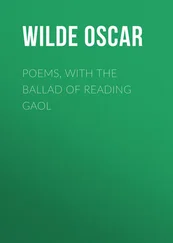“He was my life, and my blood, who taught me everything I know,” he said, patting his chest, which had started to heave, at which point, Teddy, having gotten enough down, concluded the session lest my father get more carried away. Now, if it might seem unlikely for me to recall such exact words from so long ago, I won’t dispute that I am perhaps approximating at least the spirit of what he said, but I am now only mentioning this at all to lament the fact that, all these years later, for the life of me, I can’t remember the tone and timbre of my father’s voice, which remains always soft but indistinct. (As a further aside, about twenty-five years later, long after my father had died, I bumped into Teddy on a bus, and among the things we talked about, I asked him if, by some distant chance, he had any of those old tapes around. The answer, unfortunately, was no, to my deepest disappointment, for I would have given my right arm to have heard my father’s voice again.)
Occasionally, if there had been a banquet at the hotel, he’d come home with a box or two of fancy pastries, two dozen chocolate éclairs, and as many creamy napoleons; these too were forbidden to me. It was worse on holidays like Thanksgiving and Christmas, when my father would turn up with a twenty-pound turkey and bags of stuffing, which my mother served with sweet potatoes, garlic-drenched yucca, and fried plantains, people coming over to join us, people eating away, while I’d sit off with some carefully prepared chicken and the usual roundup of boiled vegetables. At least my father was sensitive to my gnawing desires, and the way I’d look at him as he’d sit down before a plate of filet mignon smothered in onions. It bothered him enough that, now and then, he’d ask my mother if she was sure I couldn’t at least have a little taste of something different from my usual fare, but she, forced to play the heavy, always reminded him of the fact that, as far as the doctors were concerned, I was still sick, and susceptible to many bad things. He’d nod, smile sadly at me, give a little shrug, and then send me off to bed, where the aroma remained so strong that I could hardly sleep.
So for the longest time, the scent of frying plantains killed me. Not once for several years did I consume anything as lively as a quivery slice of flan, the one dessert my mother cooked, and wonderfully so. And while my parents occasionally sprang for a bar of sugarless chocolate for my delectation, the kind of chalky pasteboard confection intended for old folks and diabetics, every so often a two-pound block of dark German chocolate, over which I would salivate, would turn up in our kitchen. This I’d forlornly watch my brother happily devouring, chunk by chunk. My only consolation came from the fact that my papi , feeling for me, often had some ten-cent comic book that he’d bought for me in Grand Central, usually a Superboy or a Flash, which I think he chose because of their torero-red cape and costume. As soon as I’d hear his keys jingling in the door, I’d run down the hall to greet him, his smell of cologne, cigarettes, and meat intact, and find the comic book rolled up in one of his coat pockets; but before he’d hand it over, he’d lean down and say, “ Dame un abrazito ”—“Give me a hug” (or “ Dame un besito, chiquito ”), and once I had, into my room I’d go to follow, as best I could since I could not yet read, the adventures of those heroes by looking carefully at the panels, an act that always remained a high point of my boring days.
In those years, my father seemed not to know what to make of me. I can only recall his kindness, and with the biases I eventually developed toward my mother because of language, I got so attached to him that I came to rewrite my history in the hospital. Little as I remembered about my stay in Connecticut, I just couldn’t imagine that he hadn’t ever come to visit me during that time. Fabricating his presence in memory, I’d remember my pop in a trench coat and hat, with the smell of rain and cigarettes and cologne about him, standing by the visiting room doorway and smiling gently at me. I’d see him nodding at those other parents, their faces grown taut by worries, and then, inside that room, holding out his arms to me.
What drove that version, which I’d cling to years later after he was gone, came down to the fact that, however flawed the man might have been, he possessed an abundance of down-home Cuban warmth.
Altogether, he was a funny cat, un tipo bueno , a tender and affectionate man who had his ways. Once when he had to attend a formal wedding and concluded that his two-tone shoes were too scuffed for the occasion, he covered them over with black enamel paint. And when, in his late forties, he began to get slightly nearsighted and, at first, didn’t want to bother with an optometrist, he made do with a pair of glasses that someone had left behind in the bar. (They seem to have worked for a while.) At the hotel, he played the weekly numbers, never winning but kept paying out a dollar a week every Friday for many years, mainly to help out the black man hawking them, a Korean war veteran who had a hook for a right hand. He collected pennies, keeping them in special blue albums, perhaps thinking that they might one day make him rich. He never read books, having neither the time nor patience for them. What he did read: the Hotel and Club Voice newspaper, the Daily News , and El Diario . Also the occasional brochure that someone at the bar had given him, brochures about “Dream Vacation Homes” in New Jersey and on the value of Korean pearls as an investment opportunity being two that I recall. I can remember him far more for his tenderness toward me, at least when I was a kid, than for anything else, but all the while, he had an air of resignation about him and little patience for waiting things out, even gambling. Once, years later, when he took me over to the bazaar at Corpus Christi School and we played a wheel of luck, instead of putting down a few dimes on two different numbers, he put down dimes on all but a few. Of course, the number that he hadn’t bet on came out; he shrugged and we moved on. When this Puerto Rican kid, Fernando, got stabbed in the gut in a basement a few buildings away during a hassle with an Irish guy over a girl, and came staggering up the stairway, blood trailing behind him (the sidewalk would bear those stains for weeks), it was my father who went down to the corner to call the police. Afterward, he calmly sat out on the stoop, smoking and telling whoever wanted to listen about what had just happened. In other words, he could be quite laid-back, in a Cuban country boy manner.
And, as I have mentioned, he’d speak to me in English, not always, but when he did, it was with a quiet authority and without my mother’s befuddlement and confusion. Whereas my mother remained, for all her life, an ebullient woman, incapable of holding back, her nervous energies flowing all over the place, he comported himself with his younger son with a minimum of words: “Come here,” “Go on,” “What do you want?” “Ask your mother.” And, at least until things got too hard for him, he rarely showed any anger toward me or the world. I just found something comforting about him, even if I would never get to know what he was really about.
Yet, while he offered me affection, that cubano , a union man and hotel cook of simple tastes and longings, he never really taught me anything at all, not how to dress (though he could be quite dapper), nor how to dance the mambo or rumba (at which he, like my mother, had excelled), nor, among so many other things, even how to drive a car (he, raised on farms with horses, never would learn). And when it came to something as important as restoring that which had been taken from me, a sense of just who I was , I doubt that, as with my mother, it occurred to him that something inside of me was missing, an element of personality in need of repair. Earthly in his needs and desires, he just didn’t think that way. Though he never once accompanied me to a doctor and really didn’t take much care of himself, he simply must have seen me as the son he had almost lost, and, at first, for the longest time, always deferred to my mother when it came to matters of my health.
Читать дальше












